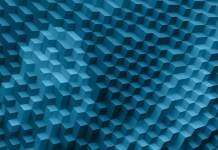Quantum Reservoir Learning Breakthrough: A Step Towards Practical Quantum Machine Learning
Insider Brief
A team of researchers led by QuEra Computing has made a groundbreaking advancement in quantum machine learning, achieving effective operation on up to 108 qubits. This development opens up possibilities for practical applications in various fields, from image classification to medical diagnostics.
The team, which included scientists from Harvard University and the University of Colorado, introduced a scalable quantum reservoir learning algorithm that leverages the quantum dynamics of neutral-atom analog quantum computers for data processing. This algorithm, described in a research paper on arXiv, surpasses the previous record of 40 qubits and demonstrates the potential of using quantum effects for better machine learning.
By utilizing a gradient-free approach, the QuEra team’s algorithm bypasses the challenges faced by traditional quantum machine learning methods, making it both scalable and resource-efficient. The method showed competitive performance in tasks such as image classification and time-series prediction, with a test accuracy of 93.5% on the MNIST handwritten digits dataset.
One significant finding of the research is the quantum kernel advantage, where non-classical correlations can be effectively utilized for machine learning. The algorithm also demonstrated noise resilience, performing consistently well even on noisy quantum hardware.
While there are potential limitations to quantum approaches in machine learning, the researchers see avenues for further exploration and improvement. Scaling up the experimental sampling rate and system size, as well as tailoring the algorithm to different quantum platforms, could lead to substantial performance gains.
Future research will focus on identifying datasets that exhibit a quantum kernel advantage and exploring the utility of the algorithm for other machine learning tasks. The versatility of the algorithm offers potential for various applications and strong hybridization with classical machine learning methods.

















